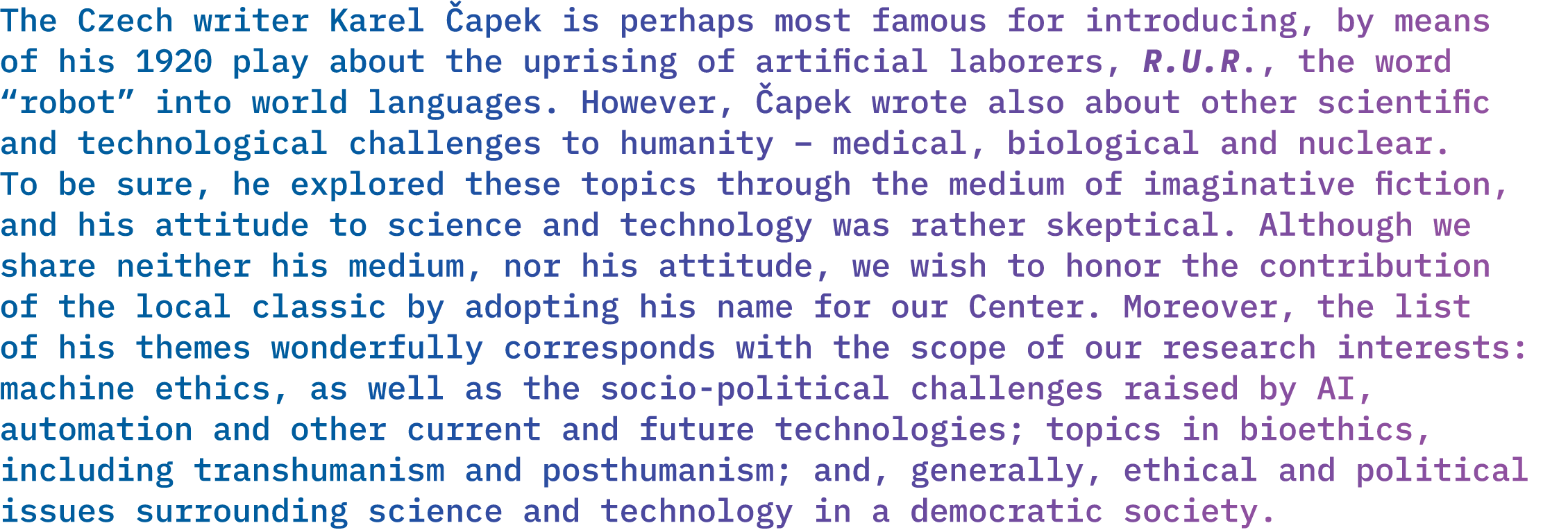The Czech writer Karel Čapek is perhaps most famous for introducing, by means of his 1920 play about the uprising of artifcial laborers, R.U.R., the word "robot" into world languages. However, Čapek wrote also about other scientifc and technological challenges to humanity – medical, biological a nuclear. To be sure, he explored these topics through the medium of imaginative fiction, and his attitude to science and technology was rather skeptical. Although we do not share his medium or attitude, we wish to honor the contribution of the local classic by adopting his name for our Center. Moreover, the list of his themes wonderfully corresponds with the scope of our research interests: machine ethics, as well as the socio-political challenges raised by AI, automation and other current and future technologies; topics in bioethics, including transhumanism and posthumanism; and, generally, ethical and political issues concerning the emerging sciences and technologies in a democratic society.
About

© 2018, The Karel Čapek Center for Values in Science and Technology
Cookies
Cookies
